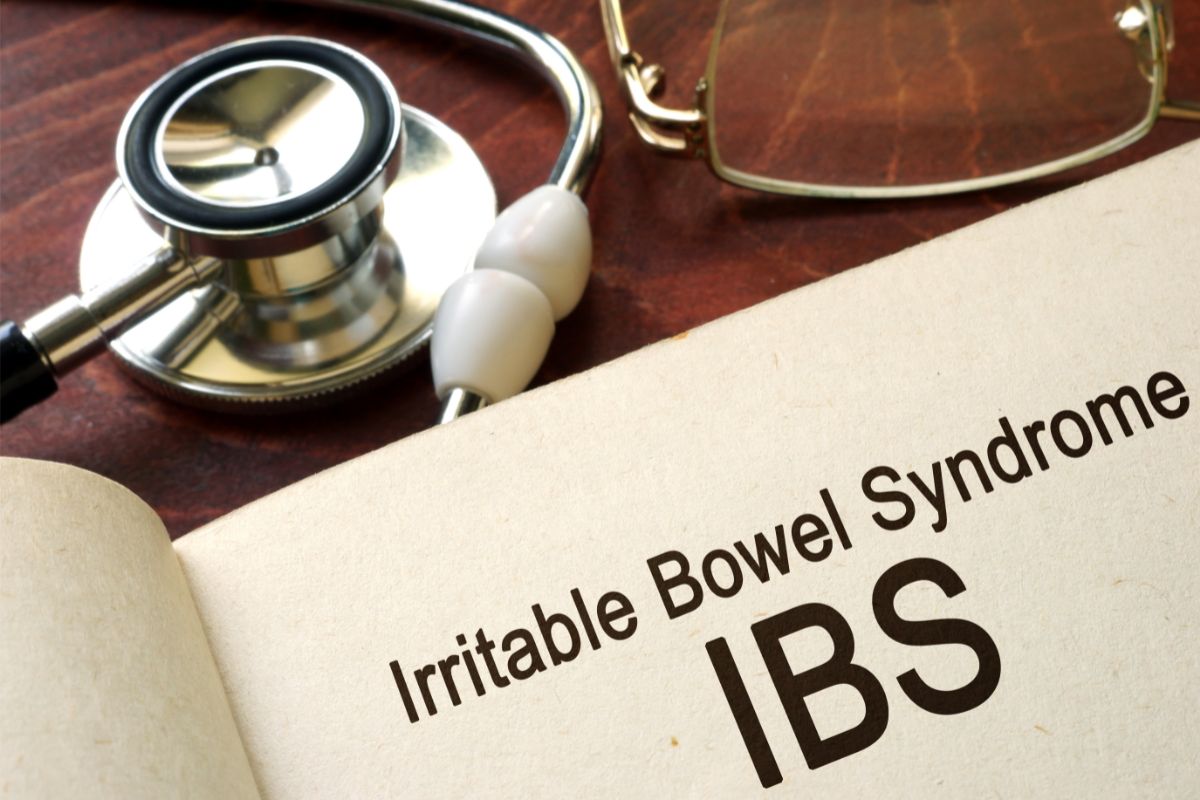IBS affects an estimated 25 to 45 million people in the United States alone. IBS can range from mild or moderate to severe, and when left to worsen, symptoms can decrease your health and wellbeing drastically.
IBS is arguably one of the most misunderstood health conditions in the world – and if you’re a sufferer, you may be inadvertently exacerbating your own IBS symptoms.

Keep reading to learn more about the five most common things you may be doing to make your IBS worse.
What Is IBS?
Irritable Bowel Syndrome (IBS) is a condition that affects the way the digestive system functions.
IBS affects the large intestine, and it can cause a range of uncomfortable symptoms, including:
- Cramping
- Nausea
- Bloating
- Gas
- Constipation
If you’ve noticed any changes in the appearance of your bowel movements, bloating, cramping, or pain associated with the passing of stools, or changes to the frequency of your bowel movements, you may be suffering from IBS.
IBS is a chronic condition that needs to be managed long-term.
If you’re experiencing any symptoms of IBS, you should see a doctor to rule out any serious conditions. More serious signs and symptoms may include:
- Rectal bleeding
- Anemia
- Unexplained vomiting
- Weight loss
- Diarrhea at nighttime
- Difficulty swallowing
- Pain that doesn’t go when passing gas or a stool
How You Might Be Making Your IBS Worse
Are you experiencing more IBS flare-ups than normal? Here are five common things you may be doing to make your IBS worse – without knowing it.
Not Exercising
If you’ve become something of a couch potato, you may be making your IBS symptoms worse. Research has shown that active IBS sufferers experienced a decrease in the severity of their symptoms, and less frequent physical activity was associated with more severe flare-ups.
Exercise may improve IBS symptoms because it alleviates stress and bloating and improves bowel function. However, researchers are still trying to determine the exact links between exercise and improved symptoms.
However, exercise can alleviate some of the most common triggers for flare-ups, and as exercise aids digestion, you’ll be less likely to experience constipation.
Eating Too Quickly
Sometimes, we all get carried away with our food. A delicious meal can go down far too easily, and before you know it, you’re the first one at the table with a clean plate. It happens.
However, if you’re not chewing your food properly, you may worsen your IBS symptoms.
If you eat your food too quickly, you’ll be swallowing more air which can cause gas and stomach pain. If you eat large meals frequently, you may also be setting yourself up for cramping and diarrhea later in the evening.
To keep on top of your symptoms, we’d recommend eating smaller portions more frequently to give your stomach time to digest.

You’re Stressed
Stress is one of the biggest IBS triggers, but unfortunately, it’s not easy to avoid. Most IBS sufferers experience aggravated symptoms during periods of stress.
This doesn’t mean stress causes IBS, but it’s definitely a well-documented trigger.
Our sympathetic and parasympathetic nervous systems often work in tandem and control the activity of our gastrointestinal systems.
The parasympathetic system controls functions such as defecation, digestion, urination, saliva production, and tear production.
The sympathetic nervous system is activated by stress or anxiety, which triggers our ‘fight or flight’ responses.
The chain reactions triggered by activation can increase our heart rate, slow or stop digestive processes in the stomach, and pump more blood to our muscles.
Research has shown that IBS disrupts the balance between our brains and our guts. So, when you’re feeling stressed or anxious, the regular gastrointestinal symptoms you’d usually experience may be exaggerated.
This overactivity may cause diarrhea or the infamous ‘dippy tummy’ sensation that sufferers are all too familiar with. You may also experience other symptoms such as abdominal pain, gas, or constipation.
Too Much Caffeine
We’re a nation of hardcore caffeine lovers. While that morning cup of joe may help get your body moving, it may also be overstimulating your gut.
Caffeine helps boost energy levels and alertness, which is why we rely on it to keep us sane throughout the day.
Unfortunately, caffeine can also increase stomach acid production and stimulate activity levels in the gut or colon. If you have IBS, you may notice increased symptoms such as diarrhea, pain, or indigestion.
If you think caffeine may be worsening your IBS symptoms, try and reduce your intake throughout the day or opt for decaffeinated alternatives.
Too Much Insoluble Fibre
There are two types of fiber: dietary fiber and insoluble fiber. Soluble fiber is broken down into the colon as it’s digested, but insoluble fiber is left intact as it travels through the gastrointestinal tract.
Insoluble fiber can be found in foods such as whole grains, vegetables, and wheat bran. While these are incredibly healthy foods for our bodies, too much of them may be making your IBS worse.
Insoluble fiber may make your pain and bloat worse. However, experience is unique to each IBS suffered.
Some may tolerate insoluble fiber well, while others may experience increased symptoms. If you’re eating plenty of insoluble fiber, you may need to decrease your consumption to improve your gut health.
You may also wish to incorporate more soluble fibers into your diet. Soluble fibers are easy to digest.
They also attract water and help remove excess fluid, which can decrease IBS symptoms such as diarrhea. Foods high in soluble fiber include black beans, brussel sprouts, sweet potatoes, and pears.
The Bottom Line
IBS is more than an inconvenience. If you’re experiencing more frequent flare-ups, you may find yourself unable to enjoy life as you used to.
Although IBS is a chronic condition, there are things you can do to manage your symptoms. Making a few simple adjustments to your lifestyle or food choices could improve your IBS drastically.
If you’re making any of the mistakes above, make a few simple tweaks to your lifestyle, and you may just find your IBS much easier to manage.
- Understanding Male Reproductive Health: A Complete Guide - February 2, 2025
- Simple Healthy Skin Habits for Radiant Skin - December 6, 2024
- Unlocking the Connection Between Nutrition and Mental Health - December 3, 2024








